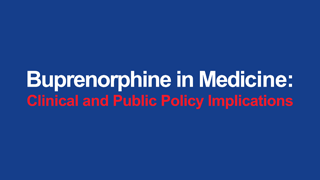Physicians’ pain management confidence versus competence
DOI:
https://doi.org/10.5055/jom.2009.0017Keywords:
pain management, physician knowledge, physician confidenceAbstract
Objective: To assess awareness of existing pain management guidelines and compare physicians’ confidence versus competence in selected pain management skills.Design: Prospective survey study.
Setting: A large urban tertiary medical center.
Patients, participants: All Department of Medicine interns, senior residents, and attending physicians were sent a questionnaire; the overall response rate was 30 percent (91/304).
Interventions: The questionnaire assessed physicians’ awareness of the institution’s pain management guidelines, their self-reported comfort level (confidence) with, and a knowledge assessment (competence) of three pain management skills (managing chronic-continuous pain, equianalgesic dose conversion, and managing breakthrough pain) using validated, standardized case vignettes.
Main outcome measures: A comparison of physicians’ confidence with their competence in these pain management skills.
Results: A total of 23 percent (21/91) of the respondents reported an awareness of the institution’s pain management guidelines. Interns were significantly less confident than senior residents in all three pain management skills (p < 0.001, 0.006, 0.02) but nonsignificantly more competent in two of three skills (chronic-continuous pain, dose conversion). Attendings were generally more confident and nonsignificantly more competent than senior residents in all three pain management skills.
Conclusions: The underutilization of the pain management guidelines illustrates that the mere existence of these resources as a means of ensuring optimal pain management is insufficient. Creative pain management educational initiatives are needed to address the disparity between physician confidence and competence.
References
National Institutes of Health: New Directions in Pain Research. September 1998: 98-102.
Chandler S, Payne R: Economics of unrelieved cancer pain. Am J Hosp Palliat Care. 1998; 15(4): 223-225.
Pressganey.com [homepage on the Internet]. Indiana: Press Ganey Associates, Inc.; c2009. Available at www.pressganey.com/. Accessed February 18, 2009.
Potter M, Schafer S, Gonzalez-Mendez E, et al.: Opioids for chronic nonmalignant pain: Attitudes and practices of primary care physicians in the UCSF/Stanford collaborative research network. J Fam Pract. 2001; 50(2): 145-151.
Gallagher R: Opioids in chronic pain management: Navigating the clinical and regulatory challenges. J Fam Pract. 2004; 53 (Suppl 10): S23-S32.
Loder E, Witkower A, McAlary P, et al.: Rehabilitation hospital staff knowledge and attitudes regarding pain. Am J Phys Med Rehabil. 2003; 82(1): 65-68.
Von Roenn J, Cleeland C, Gonin R, et al.: Physician attitudes and practice in cancer pain management: A survey from the Eastern cooperative oncology group. Ann Int Med. 1993; 119(2): 121-126.
Elliott T, Murray D, Elliott B, et al.: Physician knowledge and attitudes about cancer pain management: A survey from the Minnesota Cancer Pain Project. J Pain Symptom Manage. 1995; 10(7): 494-504.
Lebovits A, Florence I, Bathina R, et al.: Pain knowledge and attitudes of healthcare providers: Practice characteristic differences. Clin J Pain. 1997; 13(3): 237-243.
Ponte C, Johnson-Tribino J: Attitudes and knowledge about pain: An assessment of West Virginia family physicians. Fam Med. 2005; 37(7): 477-480.
Levin M, Berry J, Leither J: Management of pain in terminally ill patients: Physician reports of knowledge, attitudes, and behavior. J Pain Symptom Manage. 1998; 15: 27-40.
Wilkes G, Lasch K, Lee J, et al.: Evaluation of a cancer pain education module. Oncol Nurs Forum. 2003; 30(6): 1037-1043.
Lasch K, Wilkes G, Lee J, et al.: Is hands-on experience more effective than didactic workshops in postgraduate cancer pain education? J Cancer Educ. 2000; 15: 218-222.
Friedman CP, Gatti GG, Franz TM, et al.: Do physicians know when their diagnoses are correct? J Gen Intern Med. 2005; 20: 334-339.
Xue Y, Schulman-Green, D, Czaplinski C, et al.: Pain attitudes and knowledge among RN’s, pharmacists, and physicians on an inpatient oncology service. Clin J Onc Nurs. 2007; 11(5): 687-695.
Mortimer JE, Bartlett NL: Assessment of knowledge about cancer pain management by physicians in training. J Pain Symptom Manage. 1997; 14(1): 21-28.
Von Gunten CF, Von Roenn JH, Weitzman S: Housestaff training in cancer pain education. J Cancer Educ. 1995; 9(4): 230-234.
Harasym PH, Tsai TC, Hemmati P: Current trends in developing medical students’ critical thinking abilities. Kaohsiung J Med Sci. 2008; 24: 341-355.
Boulet JR: Summative assessment in medicine: The promise of simulation for high-stakes evaluation. Acad Emerg Med. 2008; 15: 1017-1024.
Srinivasan M, Hwang JC, West D, et al.: Assessment of clinical skills using simulator technologies. Acad Psychiatry. 2006; 30: 505-515.
Published
How to Cite
Issue
Section
License
Copyright 2005-2025, Weston Medical Publishing, LLC and Journal of Opioid Management. All Rights Reserved.










